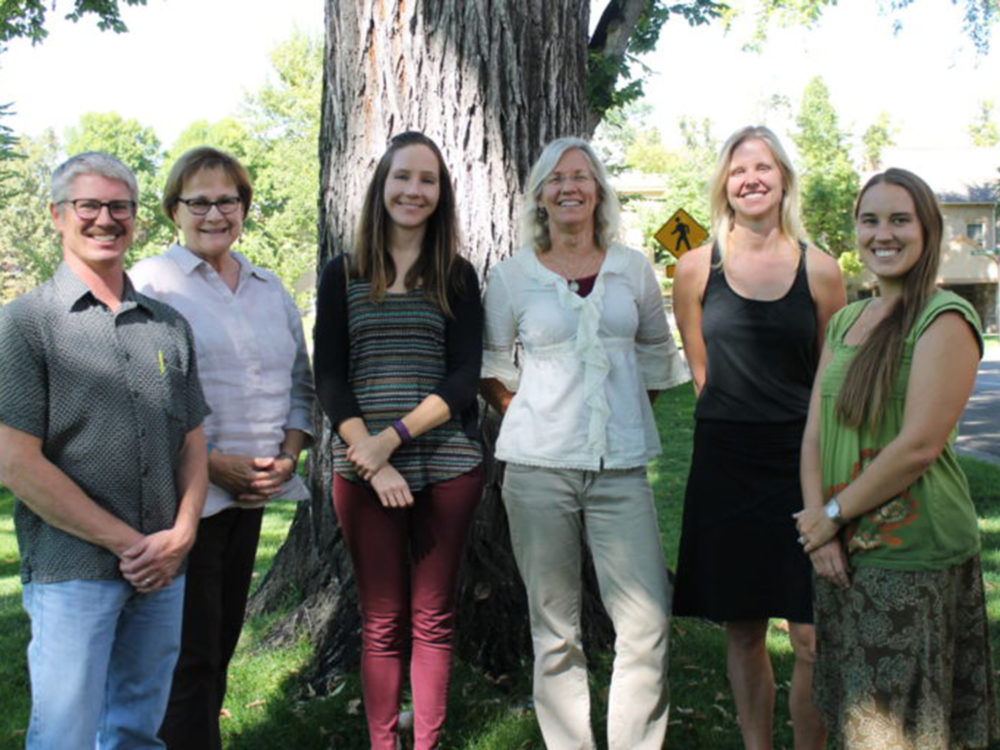Center for Community Partnerships Better Sleep for Colorado State University and the Northern Colorado Community
Thank you so much for helping me sleep! What a refreshing change to get a good night’s sleep.

The Center for Community Partnerships (CCP) provides sleep services for CSU students, staff, and faculty, as well as community members in Northern Colorado. Cognitive Behavioral Therapy for Insomnia (CBTI) is an evidence-based behavioral intervention and the current gold standard for treating chronic insomnia. CCP has several CBTI-trained practitioners. Consider the following questions and please reach out if you would like to learn more about our sleep program.
Do you:
- Take 30+ minutes to fall asleep?
- Spend 30+ minutes awake at night?
- Wake up 30+ minutes before your alarm?
- Feel tired during the day?
Do you need help:
- Remembering?
- Focusing?
- Staying alert?
- Managing your mood?
- Increasing your well-being?
If you answered yes to any of these questions, you may be one of many people who have insomnia or another sleep disorder.
SLEEP: The missing link to a better you! Better sleep can result in significant improvements in:
- Depression symptoms
- Anxiety symptoms
- Perceived stress
- Nightmares
- Education and knowledge about sleep
Natalie Rolle, MOT, OTR/L, developed and oversees the Sleep Services program at The Center for Community Partnerships. Natalie is a member of the Society of Behavioral Sleep Medicine and has advanced training in CBTI. In addition to providing direct sleep services, she also trains other Occupational Therapists in CBTI.
“I am so grateful for you! Your patience, perseverance, knowledge, humor, and personality made this CBTI worthwhile! Thank you for making a difference in the lives of others. You will always have a special place in my heart!”

Sleep Services - CBTI Additional Information
How do I get started?
The first step is scheduling a free 30-minute screening to learn more and confirm that you are a good candidate for this treatment. Please email sleep-ccp@colostate.edu to schedule a screening.
If we determine that you are a good candidate for CBTI, we will then schedule a sleep and health history appointment to gather the appropriate background information we need in order to best serve you. Your individualized treatment plan can then begin soon after that.
What is Cognitive Behavioral Therapy for Insomnia (CBTI)?
CBTI is an evidence-based intervention, combining behavioral and cognitive strategies to improve sleep quality. This has proven to be a very effective alternative to the use of medication and has better long-term outcomes. Recent evidence supports using CBTI as a first line approach. Behavioral treatments over medications are now considered the gold standard in research and practice for treating insomnia.
Is the program connected to Commitment to Campus (C2C)?
Yes, C2C actively promotes the program, understanding that sleep plays a vital role in well-being.
What benefits do I receive as a CSU employee?
First, there are not many certified CBTI providers in the country so having this treatment available at the university is unique! Second, you can use your Health Savings Account to pay for treatment.
Do I have to work at CSU to take part in this treatment?
No, if you live in Colorado, we can serve you! We can provide telehealth or in person sessions.
What is the cost of your service and do you take insurance?
NOTE: Starting Jan 1, 2024 our rates will increase to $44/quarter hour or $176/hour.
We charge $38/quarter hour or $152/hour. Most sessions run 45 to 60 minutes.
Total cost for treatment varies based on individual needs and associated treatment protocols. Generally, treatment consists of one session per week for six to eight weeks. Many individuals show improvement after just a few sessions.
Currently, we do not accept insurance. We can provide you with an itemized superbill if you would like to submit to your insurance carrier for out-of-network provider reimbursement. Reimbursement will vary based on insurance, but we know that some clients have been successful with out-of-network provider reimbursement. Also, we are happy to provide you CPT codes that we use for billing if you would like to talk to your insurance about potential coverage prior to beginning services with us.
Further, unlike most treatments, you will learn how to use the intervention on your own allowing for continued self-management. This is a unique benefit and likely the reason why people who use our services and get better during treatment, continue to maintain improved sleep, and often experience further improvements months after the treatment has ended.
What are the payment options?
You can pay per service session or we offer payment plans to help support the financial needs of our clients. Payment can be made through your HSA account, credit card, or check.
I was told to get a sleep study done by my primary care doctor, is that what you do?
No, a sleep study is a one-night snapshot of your sleep architecture, brain waves, breathing, heart rate, etc., to assess if you have conditions such as sleep apnea or periodic limb movements. Sleep studies are done at home or in the hospital while you are connected to several monitoring devices.
Do you provide in person and telehealth services?
Yes, we provide both in person and telehealth services! These are provided at client’s preference. Treatment outcomes for in person services and telehealth services are proven to be equally effective.
What is the history of the Sleep Services program?
In 2015, the Wounded Warrior Project awarded a grant to Aaron Eakman, Ph.D., OTR/L, entitled “Restoring Effective Sleep Tranquility in College Veterans with Service Related Injuries” or “REST” project at CSU. He then brought on Natalie Rolle as the lead occupational therapist for this program. The success they both had with the initial research project provided the foundation and highlighted the demand for a comprehensive sleep services program, which Natalie Rolle started in 2020. Visit RESTweb for more information and publications about the original “REST” project.
For more information and publications about the “REST” pilot project, please visit RESTweb.



